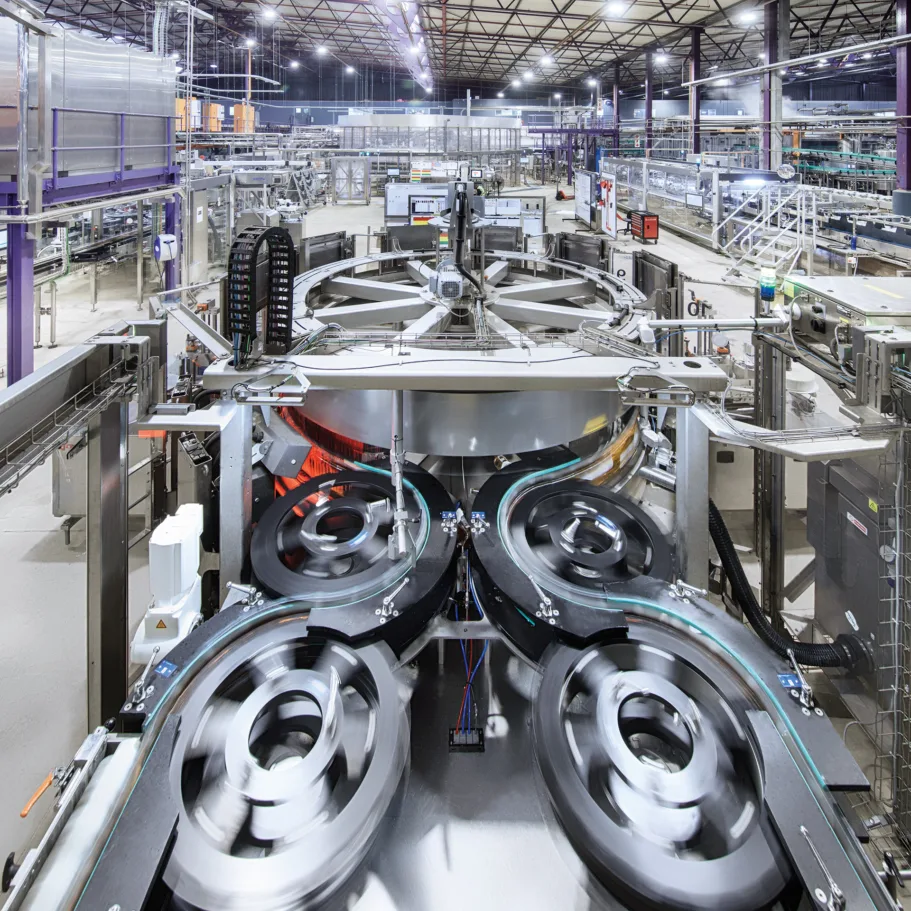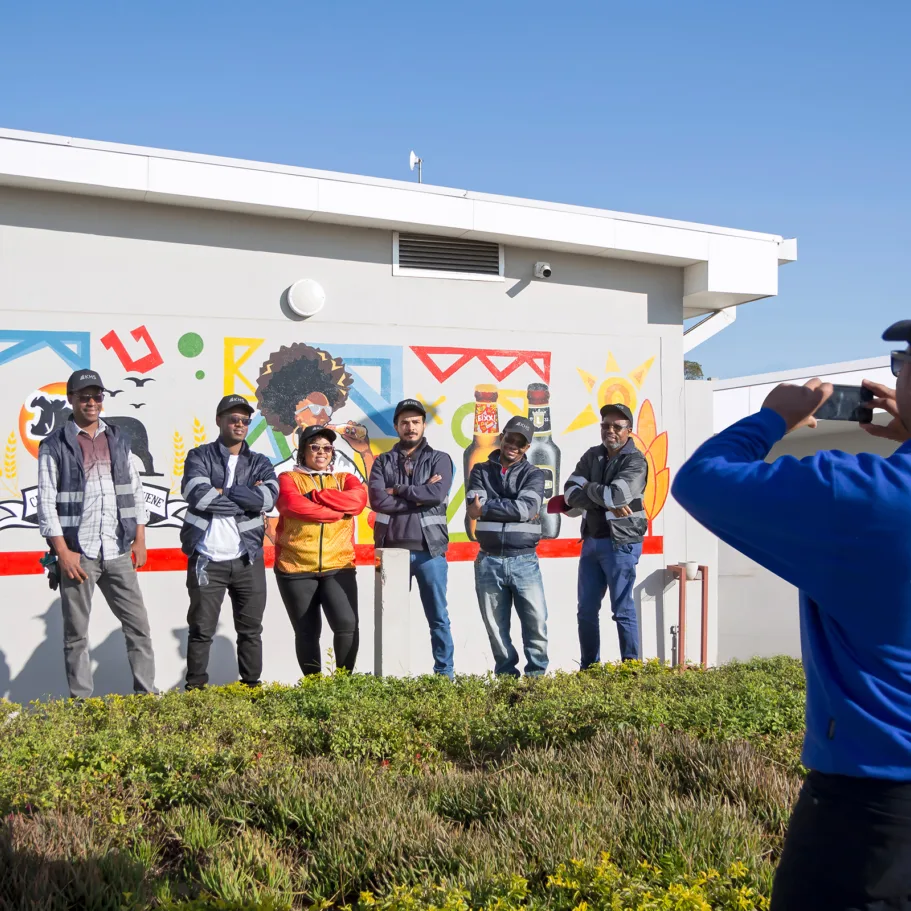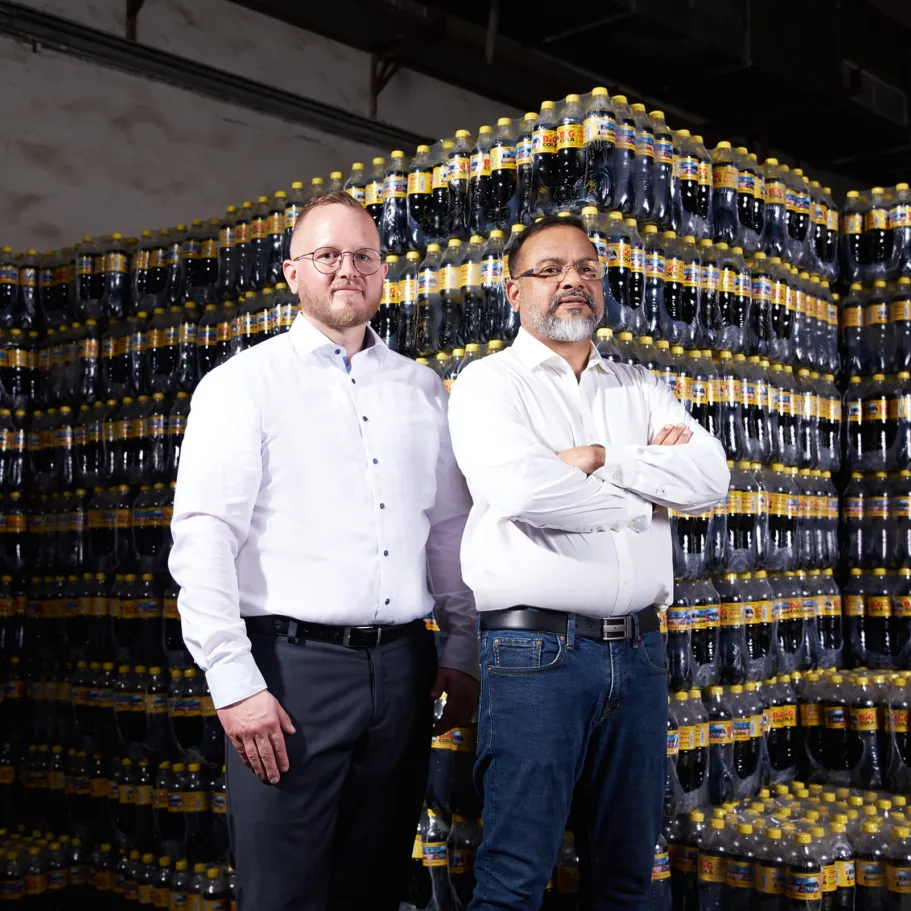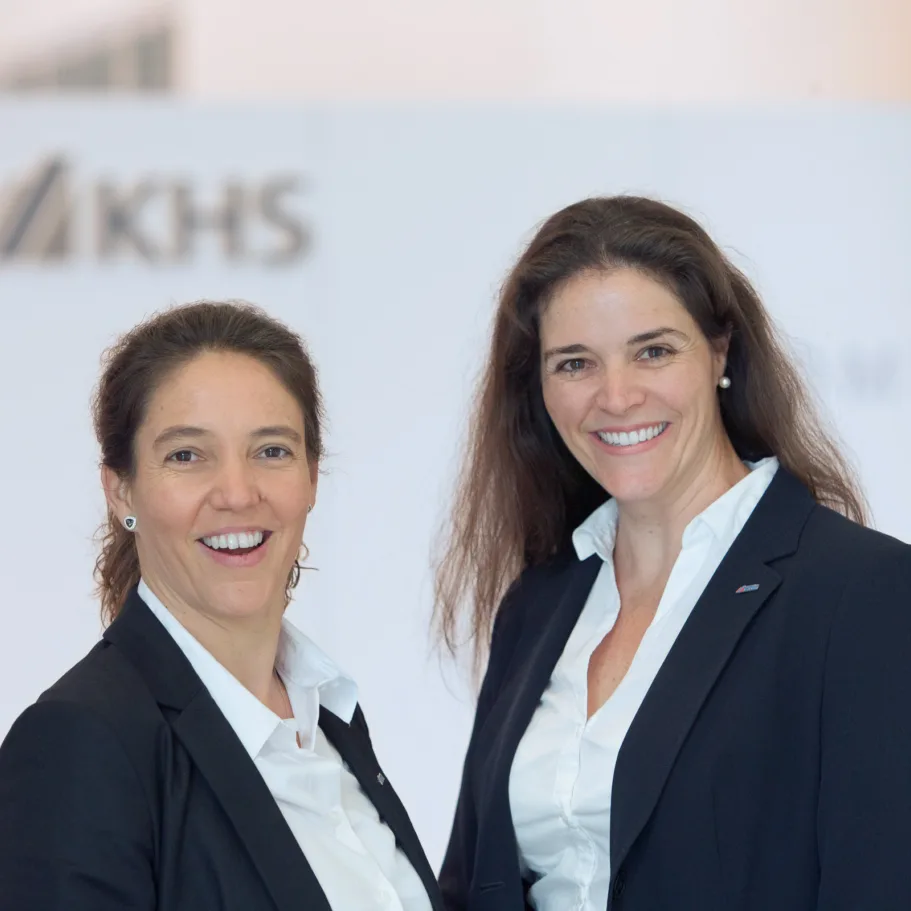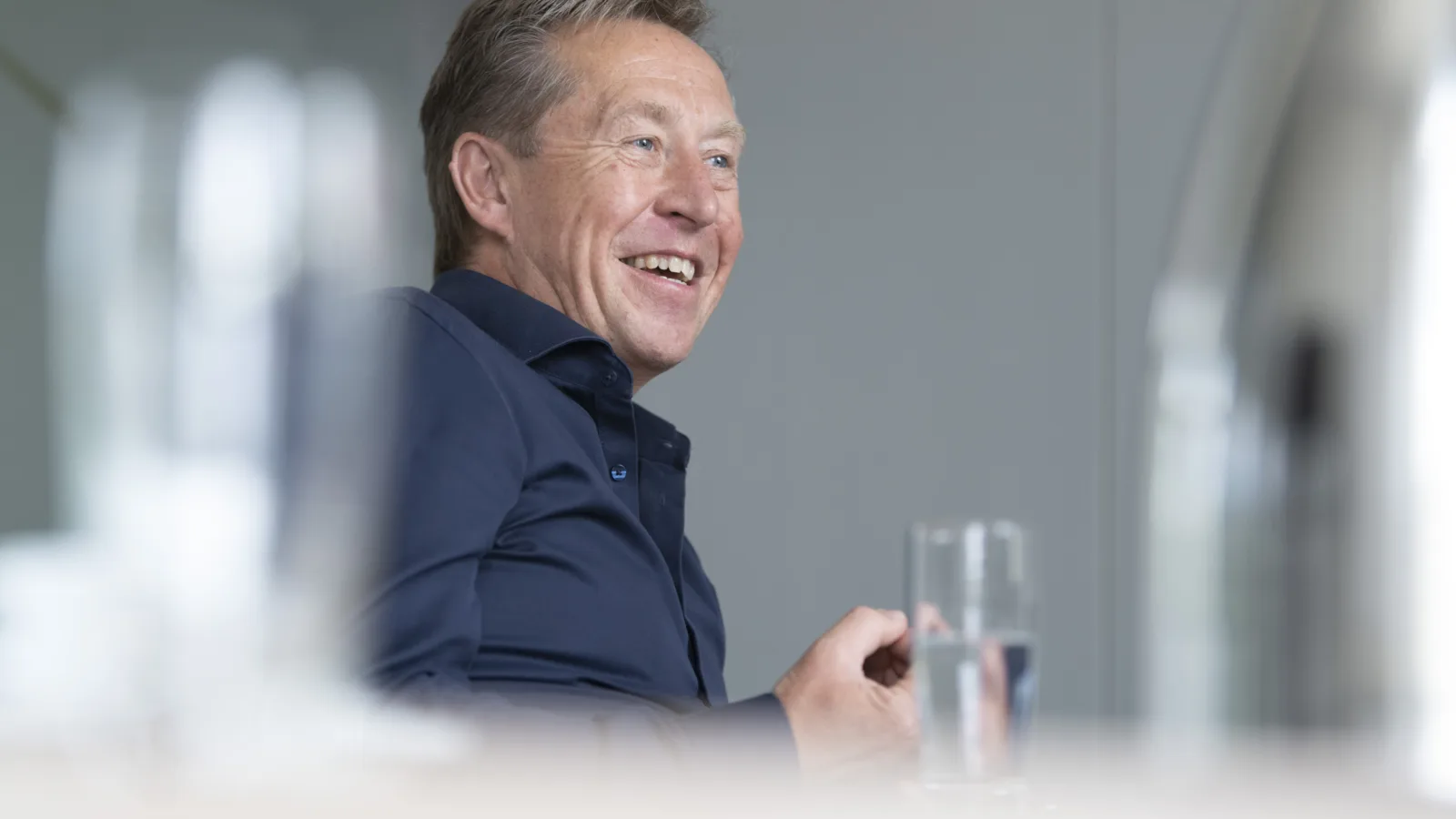
Growth through challenge
Five regional centers, around 70 different countries and at least as many uncertainties: serious long-term planning in KHS’ Middle East /Africa market zone is practically impossible, finds executive vice-president Markus Auinger. However, those who invest despite this can hope for above-average rates of growth.
After 25 years in the business, executive vice-president Markus Auinger knows the African continent and the Middle East like the back of his hand. Hired by KHS in Bad Kreuznach, Germany, in 2011, the now 56-year-old took over as head of Market Zone Middle East /Africa here just two years later. It currently contributes over 20% to the KHS Group’s turnover, with this share having increased by a third since 2020. Despite the challenging general circumstances, KHS’ operations in this part of the world continue to grow overall at an above-average rate.
Two big players in particular want to exploit this potential: firstly Europe, that wishes to invest more heavily in the continent; and secondly China, that for years gave many countries credit – some of it enormous – under the auspices of its Belt and Road Initiative. In sub-Saharan Africa especially, this has caused certain tension, as a number of states such as Ghana and Kenya are now having huge difficulty paying off their debts.
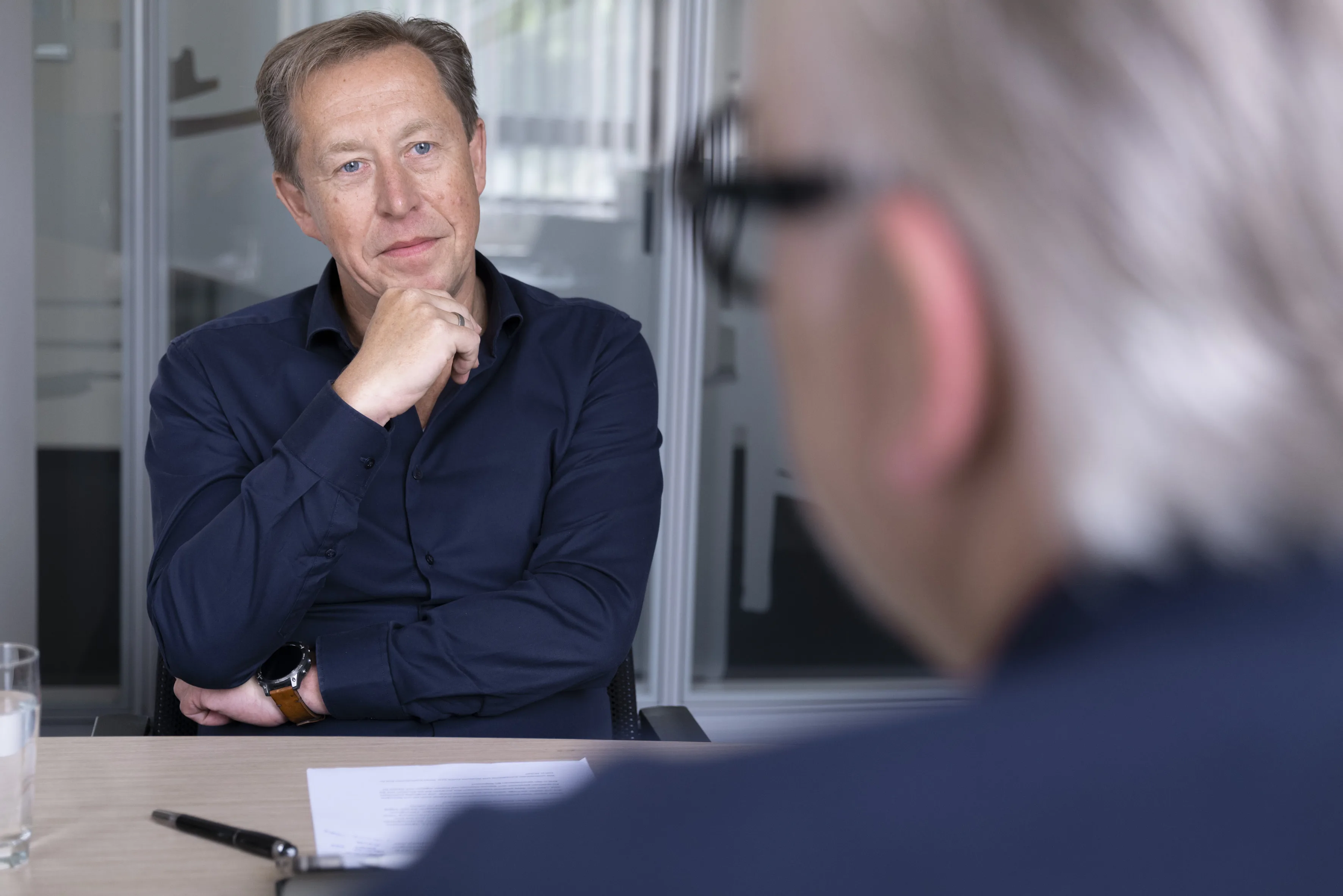
Even if the general circumstances are often challenging, business in the market zone continues to experience above-average growth, states Auinger.
Growing competition from China
In view of its rapid demographic development, Africa raises the highest expectations of economic growth – also among German engineering companies who are facing increasing competition from Chinese manufacturers. These are now penetrating the African market with very high-quality products, emphasizes Auinger. “However, at the moment no-one can gauge how these compare to our German system technology with respect to machine service lives.”
Around 85% of the sales share for this market zone falls to PET lines alone. On the one hand, this is thanks to the comparatively lower amount of investment required – unlike with glass containers, no bottle washers or rinsers are needed here. On the other, the glass empties themselves bind sizeable current assets; it’s thus chiefly the international concerns, long established in this region, who can afford to fill beer in particular into returnable glass bottles.
“Through its regional centers, KHS supports plant operations across the entire continent in the long term with its dedicated service engineers.”
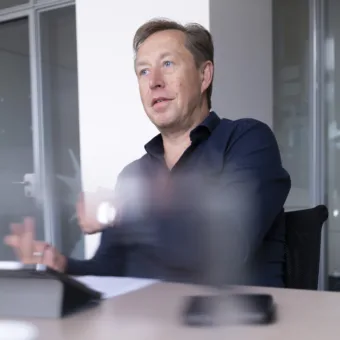
Executive vice-president of Market Zone Middle East /Africa, KHS
On-site production
With the help of modern stretch blow molding technology, PET bottles can be fabricated in the respective country by local beverage producers themselves. They often have the plastic granulate needed delivered in containers so that they can injection-mold preforms in house. Compared to PET, the beverage can holds relatively little significance on the subcontinent. There are hardly any can manufacturers in this region: importing, transporting and storing these containers would incur high costs and bind capital.
The matter of recycling is approached in various ways within the market zone. In the Middle East, it’s now standard to recycle PET – if not usually on a bottle-to-bottle basis. The setup in Africa is less uniform: lots of countries collect and recycle but some don’t, depending on what’s endorsed politically. Sustainability as a whole is an issue everywhere, however, especially when this concerns energy efficiency and material savings. In this context, modern technologies such as KHS Plasmax barrier protection are proving popular, as they facilitate plastic bottle lightweighting.
With their ambitious climate and carbon reduction targets, multinational companies are also exerting a positive influence; they’re increasingly looking to Africa, particularly Coca-Cola, where it’s estimated that in the future every fourth coke in the world will be drunk.
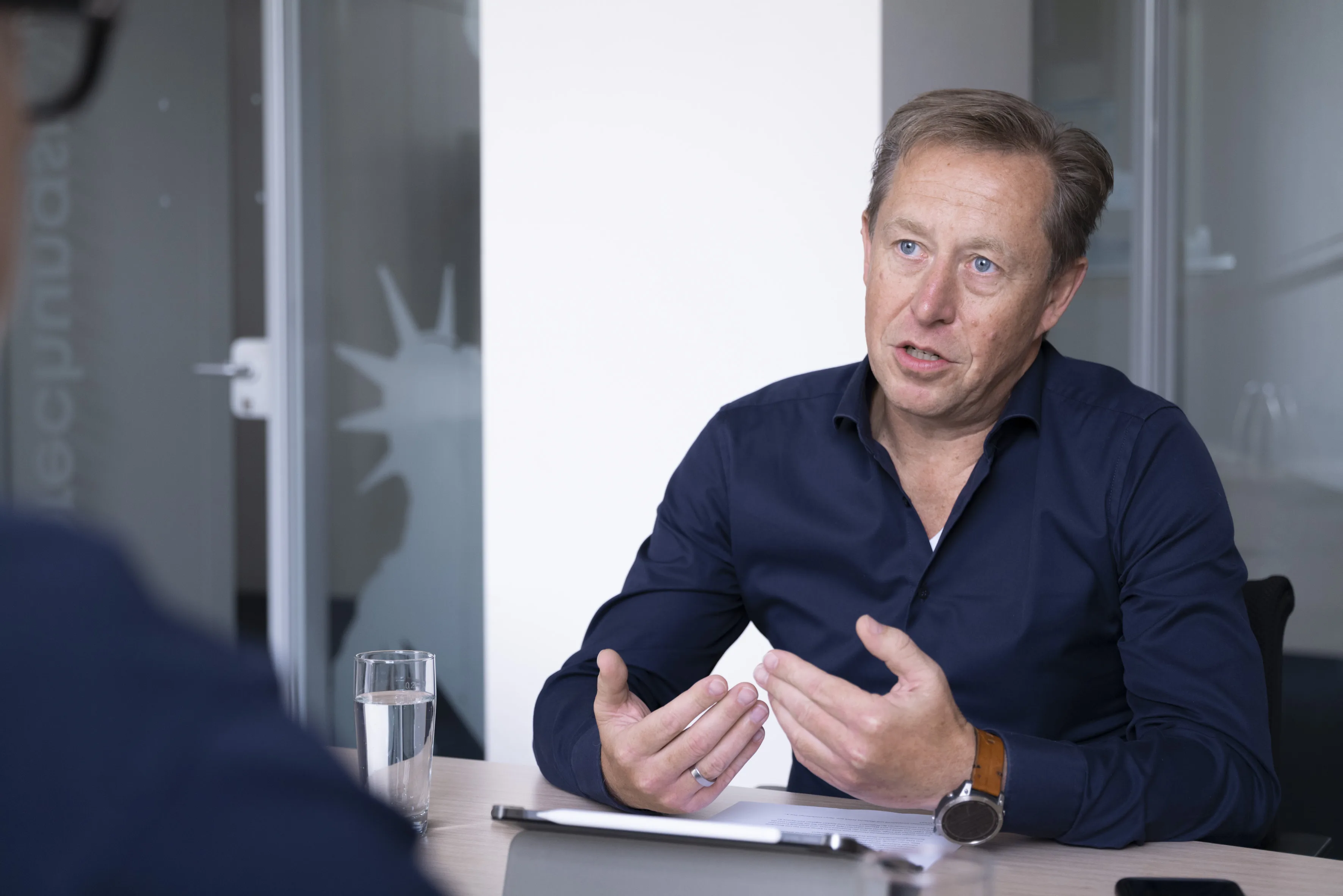
Auinger explains that the high share of PET lines is because no bottle washers or rinsers are required and therefore investment is lower.
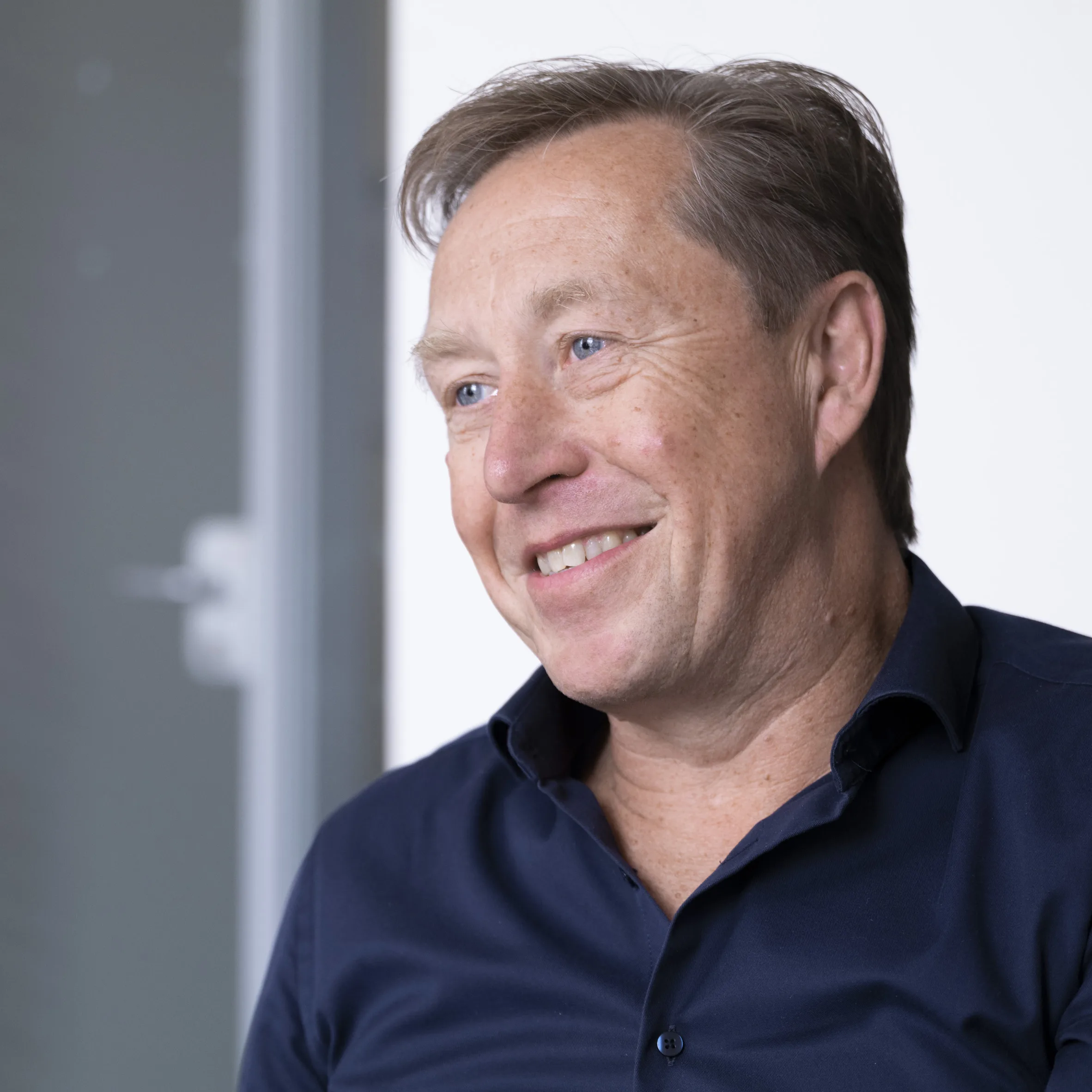
High outputs in demand
In view of demand that’s growing in step with the population, the trend is for filling lines with higher outputs of up to 90,000 containers per hour – a requirement where KHS can score points over its Asian competitors.
Ahead in after sales
“German suppliers in particular aren’t just up front when it comes to high performance; we’re also ahead of our Chinese and Italian colleagues in service,” Auinger claims. “They don’t yet have a suitable setup, whereas KHS can support plant operations across the entire continent in the long term with its regional centers and dedicated service engineers.”
Gap between rich and poor
The sales region covered by Auinger and his team ranges from some of the richest nations of the world to its poor and poorest – that make up the majority. Accordingly, the economic situation is extremely divergent: where investment in some states is relatively assured, in others companies are more skeptical, with political unrest, elections and changes in government inhibiting customers’ willingness to invest. This in turn lowers their willingness to take risks.
Generally, the situation in most countries is extremely volatile, making any serious planning beyond a period of five to ten years practically impossible. It’s thus all the more important to have new production capacities up and running as quickly as possible so that they can pay off in a short space of time.
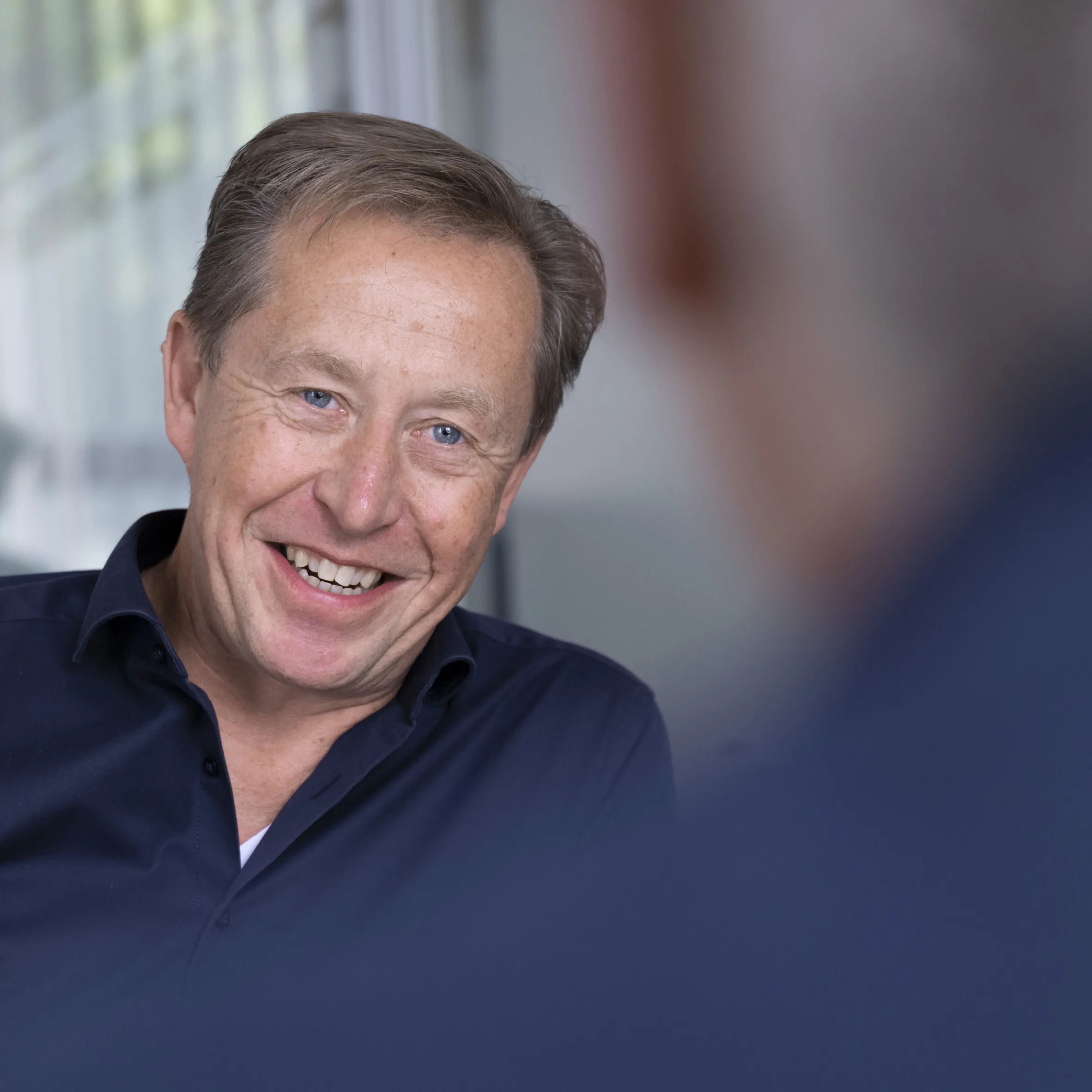
Auinger believes that the growing demand for filling lines with higher outputs in his market zone is where KHS can score points over its Asian competitors.
Investment curbed by lending rates
“Contrary to this, in sub-Saharan Africa especially it’s often a long haul from the decision to invest to actual implementation of a project,” explains Auinger. “Collapses in exchange rates, high state debts and backlogs in payment make for poor financial ratings. It’s thus becoming increasingly more expensive for companies to receive loans to finance their planned investments – and for some it’s even impossible.”
Foreign companies in North Africa face other risks, where letters of credit are largely obligatory to secure investments. Yet in the Middle East, with its abundance of oil and gas fields and high purchasing power, this problem doesn’t exist.
No KHS factories currently planned
In the midst of these manifold uncertainties, according to Auinger establishing KHS production sites in his region isn’t an issue at the moment. The general conditions are such that a broad number of locations simply can’t be considered, he claims. And as there’s no functioning supply chain here, all of the materials needed to manufacture the machinery would have to be transported across vast distances in many cases – which would yield no benefit whatsoever.
Auinger describes how diverse the challenges are in the five regions of his market zone in the article entitled “Never the same”.
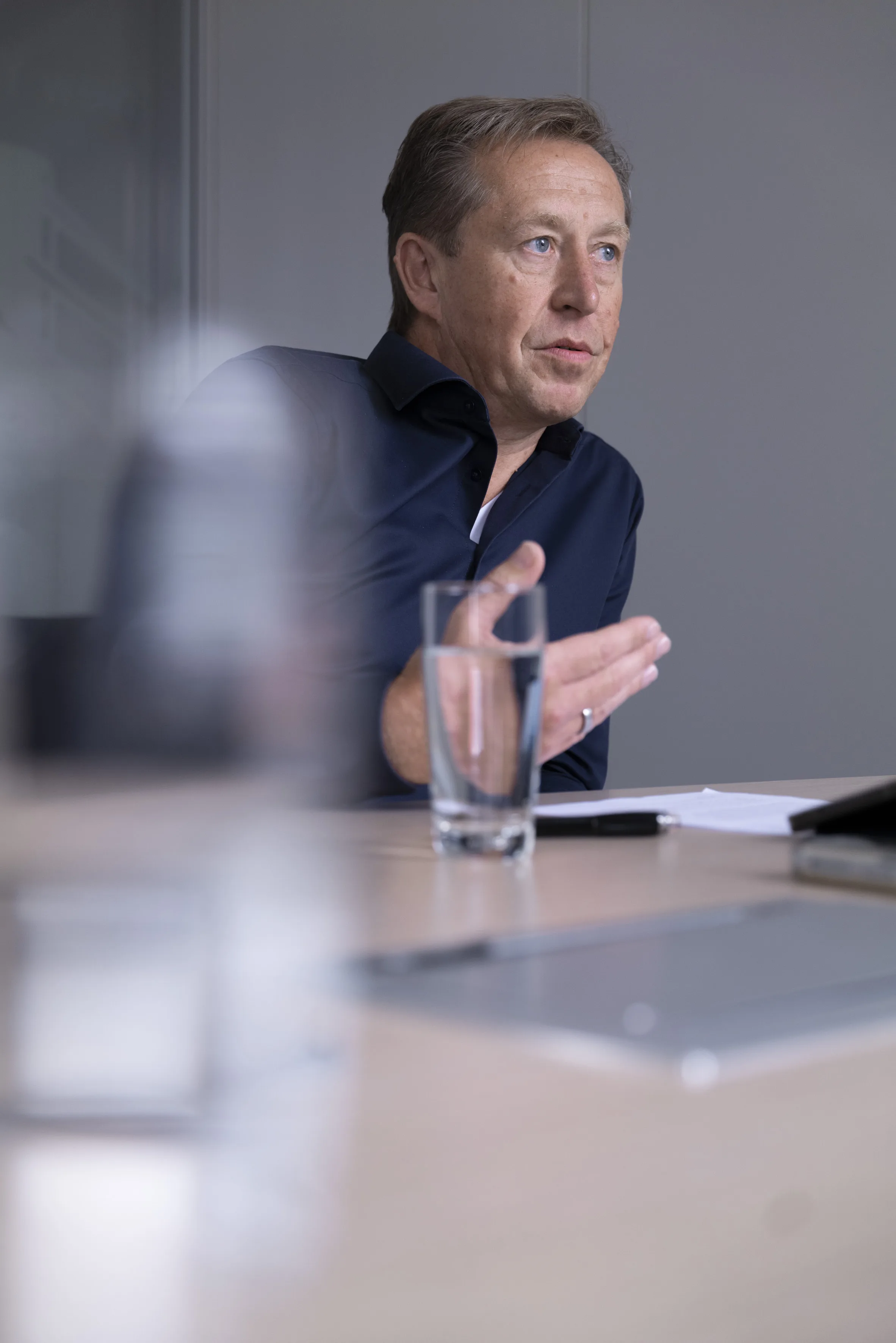
For Auinger, establishing KHS factories in the Middle East/Africa market zone is not an issue at the moment in view of the general conditions and lack of a functioning supply chain.

Limiting risks
How does a company like KHS prepare itself to meet these challenges? “Risk management plays a key role here,” says Auinger. “By working in Yemen or Somalia, for instance, we meet our responsibility to supply people in dangerous regions, too, regardless of our economic interests. But you can of course imagine that we’re also concerned about ensuring the safety and wellbeing of our own personnel. We work closely with various partners to this end who not only help our colleagues to adapt their own behavior accordingly but also to protect life and limb.”
Another important aspect is to guard against defaults in payment, primarily by means of Hermes guarantees as state assurance for German exporters and an incentive for more investment. The resulting growth of African commercial and development banks makes the funding of local businesses also attractive to German banks.
Consistently regional
“Our strategy of consistent regionalization is ultimately a further important factor when it comes to stabilizing our own business activities,” Auinger adds. “By helping our local customers maintain their plant equipment, we’re seen as a reliable partner – and as a guarantor of functioning technology and thus of the success of the beverage producer.”
“Our strategy of consistent regionalization is an important factor when it comes to stabilizing our own business activities in Africa.”
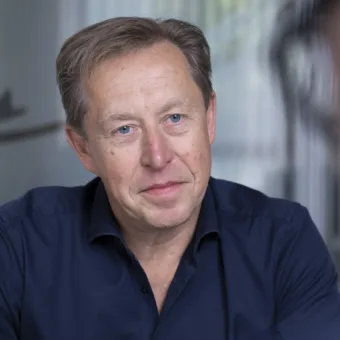
Executive Vice President Market Zone Middle East/Africa, KHS
Local employees in focus
One core element in regionalization is the local workforce. “Of the approximately 330 people employed throughout the market zone, about 90% live there,” Auinger states. “These are highly-qualified specialists who appreciate working for a Western European machine and systems manufacturer.” In the past, high fluctuation among personnel was a problem; employees didn’t feel especially bound to a particular company and therefore frequently moved on to the next job for just a minimal rise in pay. This is different now: being hired by KHS is considered to be a good personal reference and is rewarded by loyalty. African states are also no longer low-wage countries. Moreover, an increasing thirst for education and qualification is being stilled by quality courses on offer at universities, for example. There are enough candidates, Auinger believes; you just need to find the right ones who ideally also have some practical experience.
Diversity writ large
Once at KHS, employees have plenty of opportunities at this extremely global company; with the numerous exciting engineering jobs available in Germany, the USA, Brazil, India and China, for many the dream of working abroad either temporarily or permanently is within reach. Diversity is already writ large throughout the entire group, claims Auinger. “At a recent internal Sales & Service meeting in Tunis, 50 executive managers from 14 different nations were present, with just a third of them from Europe. As a team, we form a homogenous unit, all of us driven by the same requirements. Regardless of our origin or religion, our work together is always marked by a general atmosphere of respect and tolerance.”
It’s this diversity that Auinger has loved about the region for many years. Constantly adapting to new situations and coming up with new ideas are what makes his work so interesting. “And even if my job means that I’ve not been the first salesperson on site for a long time now but instead set targets and manage developments from my desk in Bad Kreuznach, I still love to travel throughout the entire region – and do so a lot. It’s not lost any of its excitement!”
